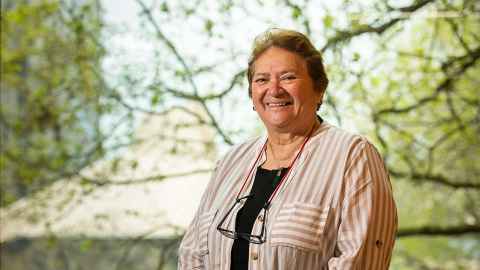Cultural identity key to treating Māori with dementia
4 October 2019
The largest-ever study of Māori affected by dementia has found the disease is poorly understood and that whānau do not know how to access information that might help.

Researchers from the universities of Auckland, Waikato and AUT and Auckland District Health Board held seven hui with kaumātua around the country and interviewed 250 people, eight of them living with dementia, to find out what they knew about dementia and what particular challenges they faced.
Lead author Dr Margaret Dudley from the University of Auckland’s School of Psychology says the research was designed to understand dementia (mate wareware) from a Māori perspective, including how whānau were coping with loved ones affected by the disease.
Love, compassion, kindness and generosity are traditional attributes practiced by Māori when involved in caregiving, she says, so whānau were more likely to keep the person at home rather than place them in a nursing home.
“That means the caregiver burden might be greater in Māori communities but at the same time, knowledge of the disease is poor with quite a widespread belief that everyone gets dementia eventually,” she says.
The study also found that wairua, or spiritual wellbeing, was a key component of helping those affected by dementia and whanau and communities cope.
“Many of the narratives we heard were about how participation in cultural activities, especially on the marae, seemed to really help people with mate wareware and lifted what they called the ‘cloudiness’ associated with it.”
Care services therefore needed to be culturally appropriate, with cultural identity a key component of management and treatment.
“Wairua is an essential component for the wellbeing of a person and their whanau in living with dementia and given that mate wareware is a growing problem in our ageing population, we want to make sure that care pathways and services are culturally appropriate and meet the needs of Māori.”
The researchers are developing a tool that will more accurately diagnose dementia for Māori.
Media contact
Anne Beston | Media adviser
DDI 09 923 3258
Mob 021 970 089
Email a.beston@auckland.ac.nz